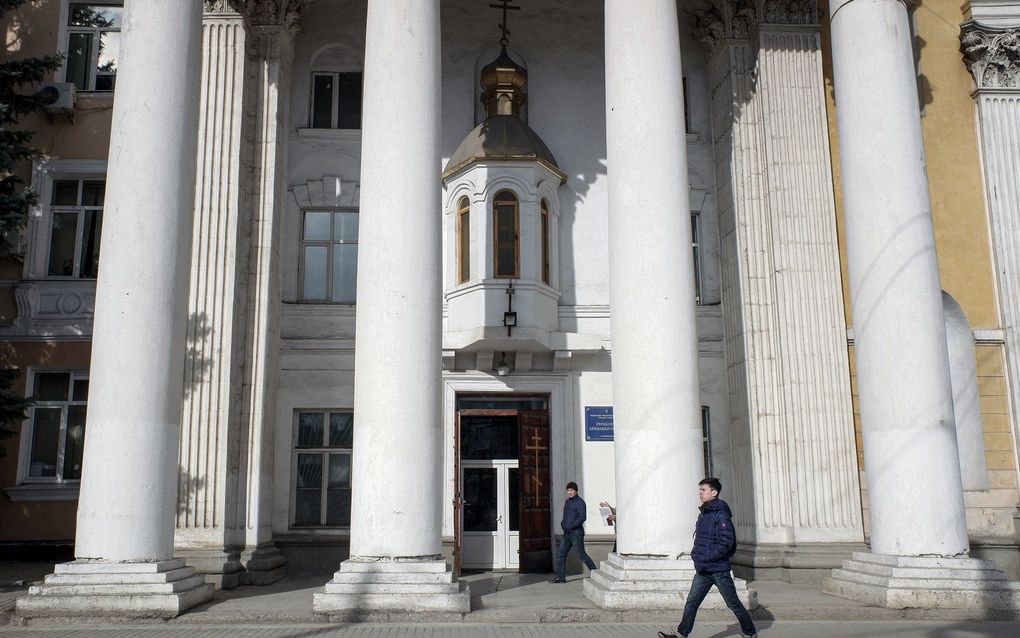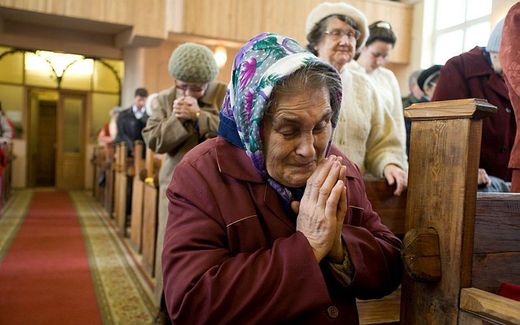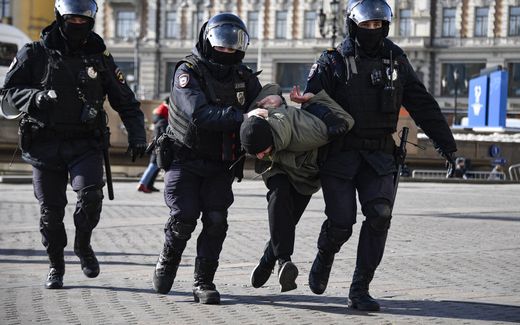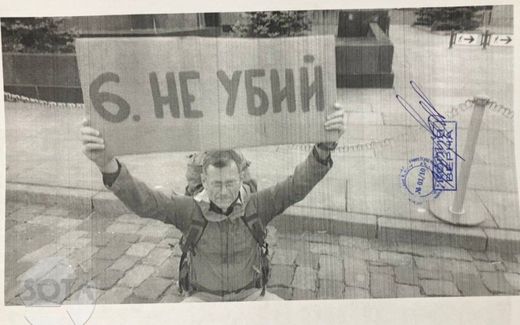Russia violates freedom of religion in Crimea

The Cathedral of Saint Vladimir and Saint Olga in Simferopol on February 15, 2019. The only major Ukrainian Orthodox Church in Russian-annexed Crimea was set to close. Photo AFP
Eastern Europe
The Russian authorities have restricted religious freedoms in the Crimean Peninsula since they occupied it in 2014. They have closed churches and fined people for organising unregistered worship services.
That is shown by a survey from Forum 18. According to Forum 18, the Russian forces violate human rights and restrict freedoms severely. They, for example, imprisoned Muslims and Jehovah's Witnesses for a long time for exercising their freedom of religion. Furthermore, they closed churches and fined religious communities for failing to display their full Russian name on church buildings, literature and websites. In addition, all worship meetings have to be registered. Unregistered meetings can be punished with a fine as well.
The oppression has led to fear among the Crimean inhabitants. According to Forum 18, they barely dare to speak about religious restrictions out of fear of Russian state reprisals.
Invasion
Russia invaded the Crimean Peninsula, belonging to Ukraine, in February 2014. It then illegally annexed the territory. The annexation is not recognised by Ukraine and most of the United Nations member states. Russia claims that 2,400,000 people live in Crimea. About 60 per cent are Orthodox Christians, 15 per cent are Muslim and smaller percentages belong to other religious denominations.
After the invasion, religious communities have suffered from raids, fines, bans on religious books, government surveillance, expulsions of foreign religious leaders, cancellation of property rental contracts and confiscation of their buildings, as reported by Forum 18.
Since 2016, only 400 out of 1,156 religious communities which applied for the mandatory registration have received official recognition. Some of them had to make changes before they were approved. For example, nine Catholic parishes had to cut ties with their Diocese of Odesa-Simferopol in Southern Ukraine. They now belong to the Pastoral District of Crimea and Sevastopol.
Sometimes, it is not clear why the registration of a particular church is rejected. The Orthodox Church of Ukraine in Simferopol parish was denied several times. The Russian Justice Ministry told the congregation that its application was faulty. However, when Forum inquired by the Ministry, officials said that "nothing in principle" stands in the way of registration of the Orthodox Church in Ukraine.
Imprisonment
Jehovah's Witnesses are a religious group suffering most under Russian rule. Several Jehovah's Witness Crimean prisoners of conscience have received lengthy jail terms for exercising their freedom of religion and belief. Currently, four of them are serving long prison sentences.
These imprisonments followed raids in 2018. Russian security service officers broke into the homes of eight families who were members of the Jehovah's Witness communities, which have been deemed extremist in Russia since 2017. These raids were violent, and a pregnant woman even miscarried as a result of them.
INLINE ARTICLE: Multiple Jehovah's Witnesses arrested in Russia
The Jehovah's Witnesses are convicted under the Russian Criminal Code, which forbids "extremist organisations." Article 282.2 bans "organising or participating in the activity of a social or religious association or other organisations in relation to which a court has adopted a decision legally in force on liquidation or ban on the activity on connection with the carrying out of extremist activity." Conviction under this article can lead to state surveillance, imprisonment, fines and forced labour.
Missionary activity
Furthermore, the Russian authorities have restricted "missionary activities."
Often the prosecution of a religious group starts with "inspections" of the communities. Officials then check documents related to registration, the place of worship and the religious group's leader.
Sometimes, these inspections lead to the closure of churches. For example, members of the Orthodox Church of Ukraine were expelled from their church in Simferopol.
Aleksandr Sedov from the Crimean Human Rights Group, which was banned, says that punishments by Russian occupiers violate international human rights standards by limiting religious freedom, among other rights.
Also, the Office of the UN High Commissioner for Human Rights condemns the Russian actions that violate international humanitarian law. It calls the Russian actions the "unlawful application of Russian Federation legislation.
Forum 18 writes that the future of the Russian occupation of Crimea is uncertain. "There is no current evidence that human rights violations within Russian-occupied areas of Ukraine are likely to reduce."
Related Articles






